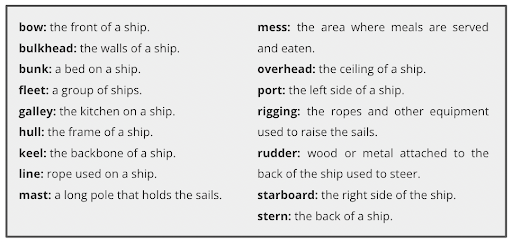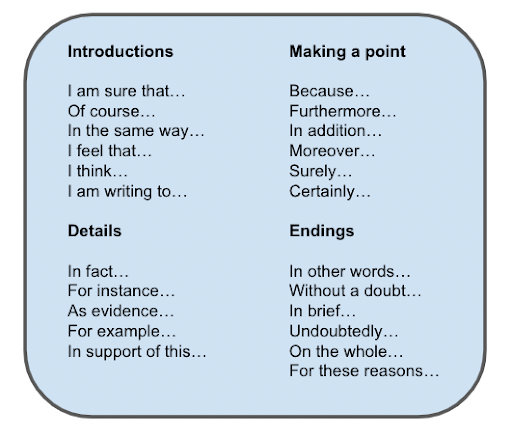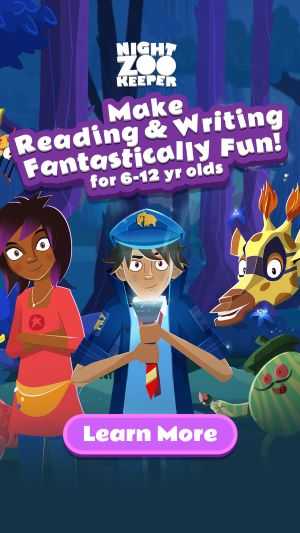Year 4 Writing Activities

These writing activities should help make Year 4 standard writing exciting for your child.
1. The Writer’s Notebook
A great place to start with your child is by setting up a ‘Writer’s Notebook’. This should be something they feel comfortable picking up and making notes in whenever they are inspired. This is a great habit for all young writers, enabling them to remember the many creative ideas that spring to mind throughout the year, or simply write about their feelings to boost their mental health. You can then schedule regular writing notebook sessions where your child selects one of their ideas and develops it to contain more detail. To track the development of their ideas you can section off the journal by the different terms. For example, how their ideas change and grow from autumn term, to spring term, to summer term.
For primary school children who may struggle with the concept of developing ideas from scratch, you can add some prompts to their Writer's Notebook to get them thinking. Take a look at these graded and picture writing prompts for some inspiration!

2. Continue the Story
Inspiration for writing can come in many forms. One of the most obvious forms of inspiration comes from reading the work of other authors. By giving children these concrete examples of great writing, it can help them to raise their level.
Ask your child to complete a chapter or a story based on reading the opening of someone else's work. This provides a writing spark for those children who may struggle for ideas or need help getting started. It is best to use something that your child is not too familiar with, as they then have the opportunity to make up their own ending and character descriptions, without simply rewriting the story.
3. Google Earth Explorers
Google Earth has made it possible for children to travel the world from the comfort of their living room or classroom. This writing activity harnesses the power of this amazing technology and uses it to inspire the next generation of travel authors.
Note: Before beginning this home learning activity, you may like to read a few sample texts written by travel authors with your children.
Firstly, you need to decide where in the world your child would like to travel to. It is best to select a small group of destinations (there are set tours that you can select from on Google Earth) and then ask child to pick their favourite.
You’re now ready to begin your adventure. As you journey around your chosen place, invite your child to make notes on their experiences. Encourage them to use adjectives to describe the landmarks and environments they are seeing on screen. To enhance the experience, you may like to play some atmospheric sounds or music originating from the place you’re visiting.
Once your child has completed their notes, assign 30 minutes of quiet writing time to allow them to write a travel journal about their experience. Your child will be getting English lessons while feeling like a world explorer!

4. The Captain’s Log
This is a fun activity to do for 10 minutes each day over the course of a month. This aligns nicely with a typical voyage length that early explorers may have journeyed for (such as Christopher Columbus). You can set the scene for the journal writing by putting on some atmospheric sounds and imagery of early sailing ships whilst your child is writing. To make it even more engaging, add a phonics twist by incorporating ship-related words that focus on specific sounds. Additionally, practice using commas by including lists of interesting ship vocabulary and descriptive sentences about tasks that sailors may have had to undertake. Use headings to organize different sections of their journal, such as "Daily Life on the Ship" or "Sailor's Tasks." Take a look at the list below to help with this. This article is also useful when understanding what life was like on a ship.

5. Songwriting
This is such a fun activity to do with Year 4 kids. It combines their interest in popular culture with creative writing. Start the exercise by listening to a range of popular songs. The songs you select should include a clear chorus and verse structure as this is easier for children to follow when they write their own lyrics. You’ll also need to prepare the song lyrics in written form (either print-outs or on-screen). This is important as children need to be able to make the link between both audio and written formats. It can also help to read through the lyrics as a group and point out the different features of the song (verse, chorus, rhyme etc).
Before your child begins to write their song, a good first step can be to write an extra verse for one of the example songs you selected. This is a good way to help inspire your child and ensure they are not intimidated by the daunting writing task of coming up with an idea all by themselves. If your child is feeling confident, they can then progress on to writing a song all of their own! They might even like to perform their song with some musical accompaniment. If your child wants an extra challenge, see if they can write an acrostic song!
6. The Restaurant Review
It is almost certain that your child has a place that they just love to eat at. Whatever restaurant, cafe or diner it may be, it can inspire some great descriptive writing.
This exercise challenges children to write a critical review of an eatery they have been to recently. You can set up this challenge by having a discussion with your child about the places they like to eat and the food they enjoy there. Try to encourage your child to use adjectives to describe the food and drink during this discussion. You might like to write down some of the best words mentioned so that your child can use these when they begin writing. It is also a great idea to show your child examples of restaurant reviews before they begin writing their own. This is a fun way to get your child practicing persuasive writing, whether they are writing a review to convince people to go or stay far away.

7. Write About Your Passion
A great way to inspire your child to produce excellent writing is to ask them to write a subject they are passionate about. For this activity, you can challenge your child to write a persuasive letter to a friend to begin playing a sport or hobby that they love. Maybe in their free time your child loves doing science experiments, practicing times tables, or talking about sports news. No matter what their passion is, you can ask them to highlight the reasons why they believe their friend must try their awesome pass-time. Show them the persuasive language listed below and ask them to try to use it in their work.

8. Night Zookeeper

Night Zookeeper makes writing fantastically fun for children aged six to twelve.
Our writing program for kids uses gamification to keep your child engaged and entertained as they learn. There are thousands of writing activities available right now, from word games to writing challenges, printable worksheets and interactive lessons.
Sign up today to get a 7-day FREE trial!
More writing activities & prompts
- Year 4 Writing Prompts
- Creative Writing Prompts for Kids
- Primary Writing Prompts
- Primary Writing Activities
- Picture Writing Prompts
Related content


Make Reading & Writing Fantastically Fun!
- Award-winning reading & writing program for kids
- Improves spelling, grammar, punctuation & vocabulary
- Over 1,000 different learning games and activities



